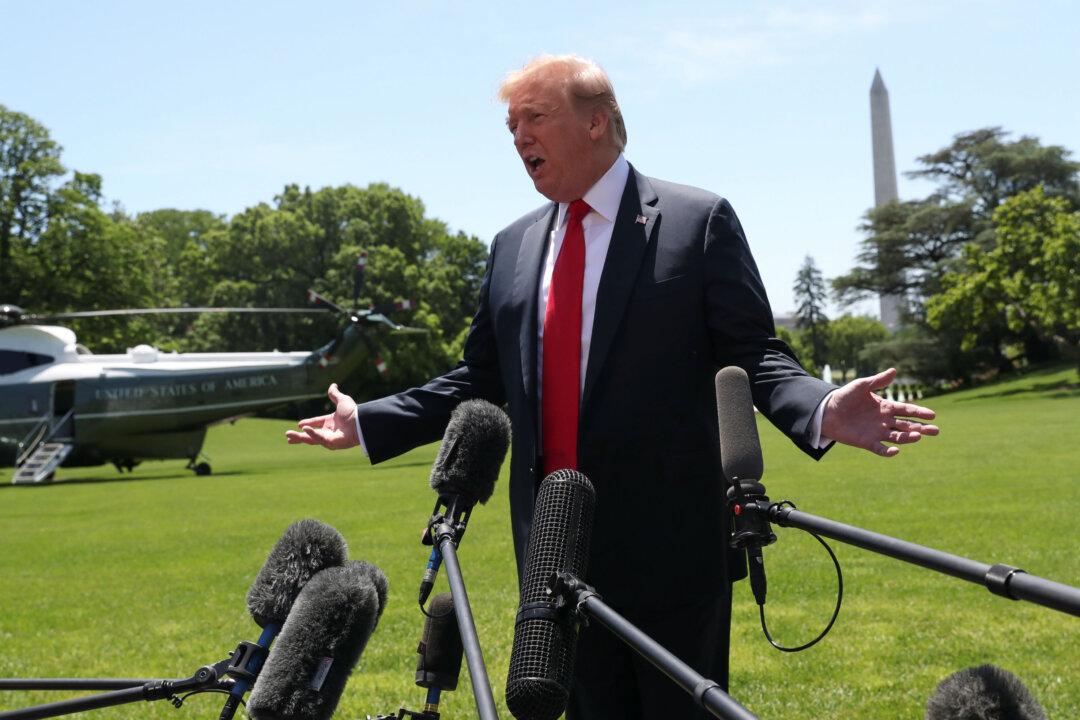President Donald Trump on June 11 said tariffs were a useful negotiating tool, while the Chinese regime has yet to confirm a meeting between Trump and Chinese leader Xi Jinping at the upcoming G20 Summit.
Trump, in a series of tweets, said “tariffs are a great negotiating tool,” and a “powerful way to ... get companies that have left us for other lands to come back home.”





